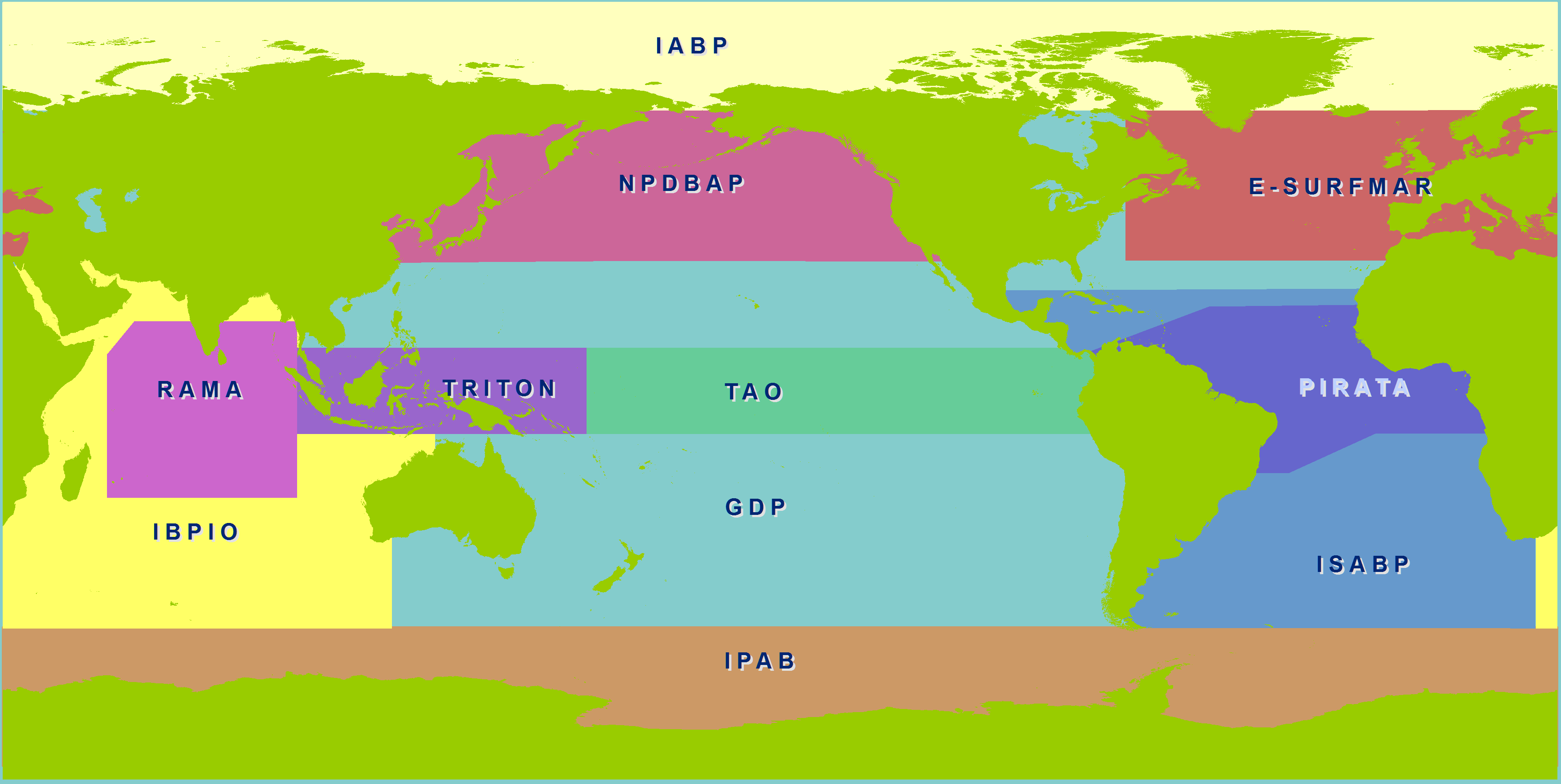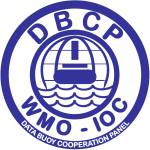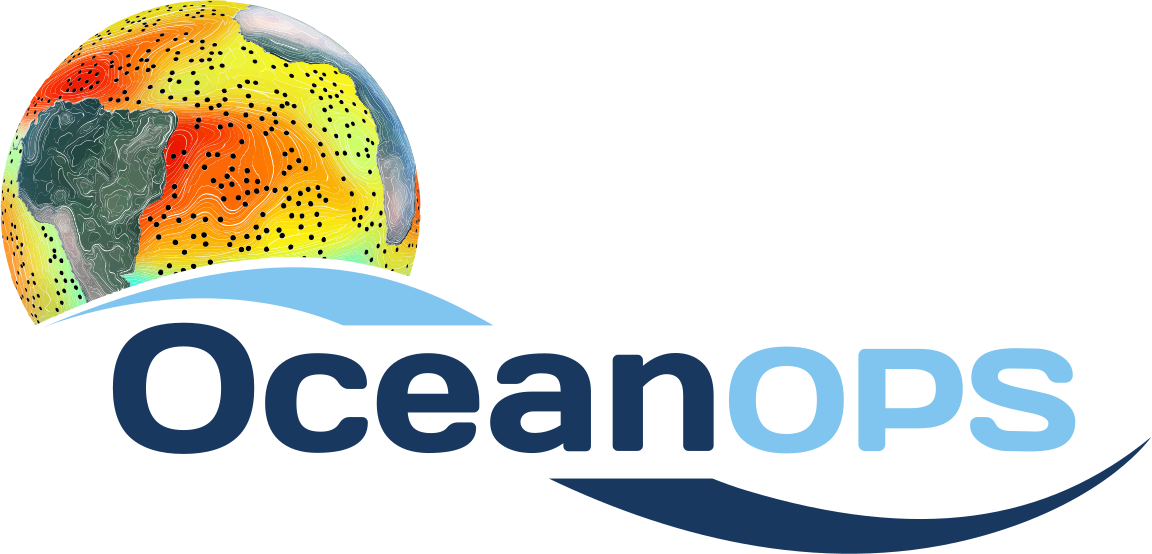DBCP Action Groups
Much of the work achieved by the DBCP is through Action Groups. Each group maintains an observational buoy program that supplies data for operational and research purposes. The implementation of buoy deployments is also coordinated through global, regional, or specialized Action Groups.

Global
- The Global Drifter Program
(GDP, adopted in 1996) - Tropical Moored Buoy Implementation Panel (TAO, TRITON, PIRATA, RAMA adopted in 1998)
Regional
- European EUCOS Surface Marine Programme (ESURFMAR, adopted in 1987 as EGOS)
- International Arctic Buoy Programme
(IABP, adopted in 1991) - International South Atlantic Buoy Programme (ISABP, adopted in 1994)
- North Pacific Data Buoy Advisory Panel
(NPDBAP, adopted in 2002) - International Buoy Program for the Indian Ocean (IBPIO, adopted in 1996)
- International Programme for Antarctic Buoys (IPAB, adopted in 1994)
Other groups
- Southern Ocean Buoy Program: Additionally, there is a regional cooperative program, focused on deploying Barometer Buoys in the Southern Ocean.
Details about members of Action Groups are available here »
More detail about the Action Groups is available in the DBCP Operating Principles »
Definition of a DBCP Action Group
- A DBCP Action Group is an independent self-funded body that maintains, as a significant element of its responsibilities, an observational buoy programme providing meteorological and oceanographic data for real-time and/or research purposes in support of the World Weather Watch (WWW), the World Climate Research Programme (WCRP), the Global Climate Observing System (GCOS), and the Global Ocean Observing System (GOOS), and other relevant WMO and IOC programmes.
- Action Groups of the DBCP shall support the aims and objectives of the DBCP - as set out in the terms of reference of the DBCP - particularly with respect to:
- Provision of good quality and timely data to users
- Insertion of real-time (or near real-time) data into the GTS
- Exchange of information on data buoy activities and development and transfer of appropriate technology
- An Action Group may be regional or national in nature provided that its programme benefits a regional or international community.
- To be adopted as an Action Group of the DBCP the terms of reference or operating principles of the body or programme shall be submitted to a session of the DBCP for formal approval. Once approved these shall be lodged with the Secretariats of WMO and IOC.
- The DBCP shall support the activities of its adopted action groups especially through the assistance of its officers (technical coordinator and the Secretariats of WMO and IOC) as far as resources allow.
- Action Groups of the DBCP shall submit annual reports of their activities to the Chairperson of the DBCP.
(as approved at DBCP-10)



